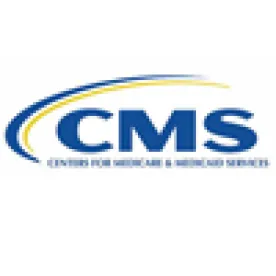In an important break with the majority of case precedents, the United States Court of Appeals for the Fifth Circuit, reversing the District Court below, held that a Medicare provider, facing a $7.6 million recoupment for alleged overpayments, can file suit in federal court and seek an injunction against ongoing recoupments, even though the provider had not yet fully exhausted its administrative remedies. Family Rehabilitation, Inc. v. Azar, U.S.C.A., 5th Cir. March 27, 2018. (“Family Rehab”).
The “exhaustion of administrative remedies” requirement — that a person or entity aggrieved by a governmental action cannot file a lawsuit challenging the action before completing all avenues for appeal before the governmental agency — is a bedrock principle of administrative law and a formidable barrier to accessing the courts. Earlier this year, we posted an article about a federal district court’s decision in MedPro Health Providers, LLC v. Hargan (“MedPro”), filed in the Northern District of Illinois, that addressed this principle in the context of a Medicare audit and recoupment. In that case, like the Family Rehab case, a home care agency challenged the recoupment of alleged Medicare overpayments determined by an audit contractor for the federal Centers for Medicare and Medicaid Services (CMS), known as a “Zone Integrity Program Contractor” or ZPIC. The Court in MedPro turned aside the home care agency’s lawsuit and request for injunctive relief, holding that the Court lacked jurisdiction until the provider had gone through and completed the prescribed four-step administrative-appeal process.
The home care agency in Family Rehab was also audited by a ZPIC and mired in the same, “byzantine” four-step administrative appeal process. The “colossal backlog” of “thousands” of administrative appeals pending before CMS, and the associated delay, did not go unnoticed. The Fifth Circuit observed that it would take, by the federal government’s own estimate, “at least another three to five years” before the appeals process would be completed. (Emphasis in original.) In the meantime, CMS had begun recouping the $7.6 million in alleged Medicare overpayments from the home care agency. The provider argued that absent a court-ordered stay, it might be forced to shut down its operations and file for bankruptcy.
The Fifth Circuit addressed three discrete exceptions recognized by the courts to the exhaustion of administrative remedies, or “channeling,” requirement, and determined that one of them, the “collateral claim” exception, applied in this case. Under the collateral-claim exception, a court can exercise jurisdiction before all administrative appeals have been exhausted if (i) the claims being raised in the lawsuit are “entirely collateral” to the underlying bases for the government agency’s action, and (ii) “full relief cannot be obtained at a post-deprivation hearing.” With regard to the first element, the Fifth Circuit noted that a court would not need to “immerse itself” in, or “wade through,” the patient eligibility certifications completed by the home care agency found deficient by the ZPIC, in order to resolve the home care agency’s legal claims of “procedural due process” and “ultra vires.” As the Fifth Circuit noted, “those claims only require the court to determine how much process is required under the Constitution and federal law before recoupment.” The appellate court further explained that “Family Rehab does not seek a determination that the recoupments are unlawful under the Medicare Act” and thus “raises claims unrelated to the merits of the recoupment.”
With regard to the second “irreparable injury” element to the collateral-claims exception, the Fifth Circuit pointed to the home care agency’s contention that it would be forced to go out of business and file for bankruptcy, which would “have detrimental effects on its employees and patients.” On those bases, the Fifth Circuit held that the court could exercise jurisdiction over the home care agency’s “collateral” procedural due process and ultra vires claims and, if warranted, grant an injunction against ongoing recoupments.
The Court of Appeals, however, rejected the other two exceptions to the exhaustion requirement advanced by the home care agency: (a) the alleged futility of the administrative appeals process; and (b) the court’s exercise of “mandamus” jurisdiction, premised on a request to compel a government officer to perform a non-discretionary duty. Regarding “futility,” the Fifth Circuit noted that this exception is “narrow” and that delay alone, however substantial or prejudicial, is insufficient without also showing that administrative review was a “legal impossibility.” The Circuit Court also held that the home care agency had not specifically requested mandamus relief in its court complaint and, accordingly, rejected that alternative basis for court jurisdiction.
Key Takeaway: At bottom, a Medicare or Medicaid provider — faced with a substantial recoupment and delay in CMS’ administrative appeals process — may be able to petition a court to stop ongoing recoupments if it can fashion credible, “collateral” claims, such as procedural due process and ultra vires, that do not call upon the court to assess the merits of the underlying overpayment findings still being addressed at the administrative level.



 />i
/>i